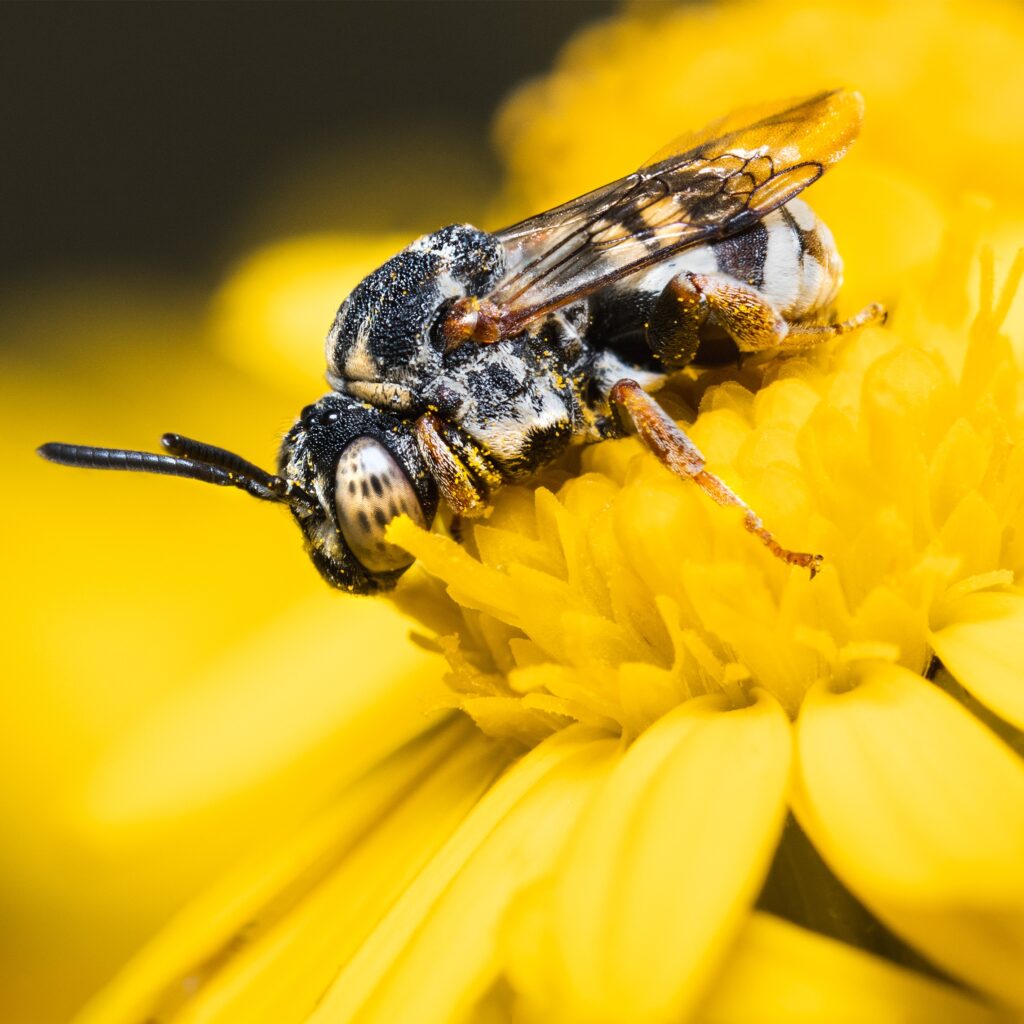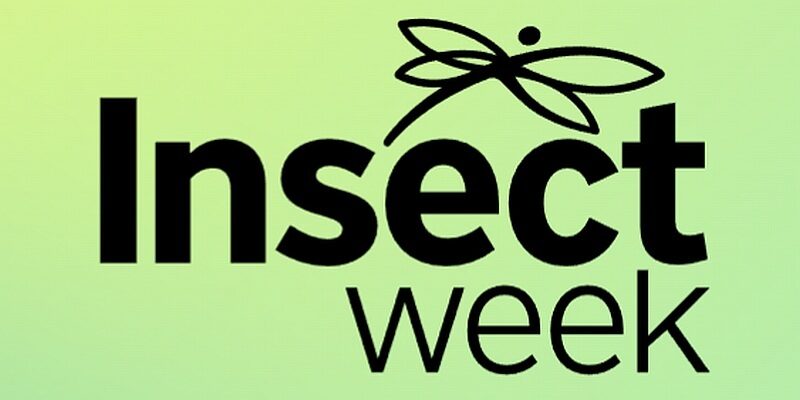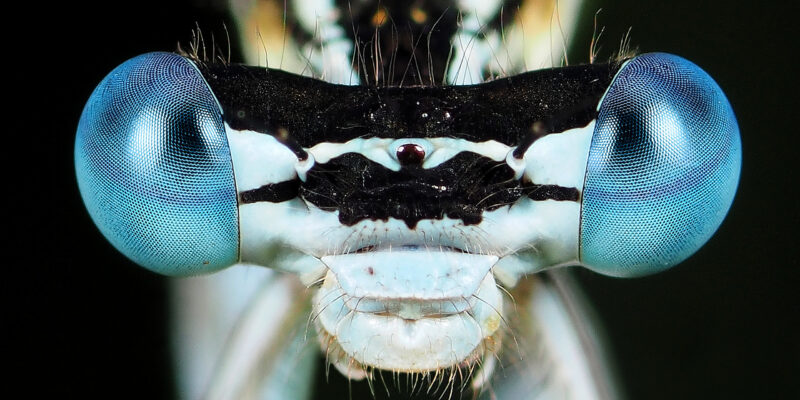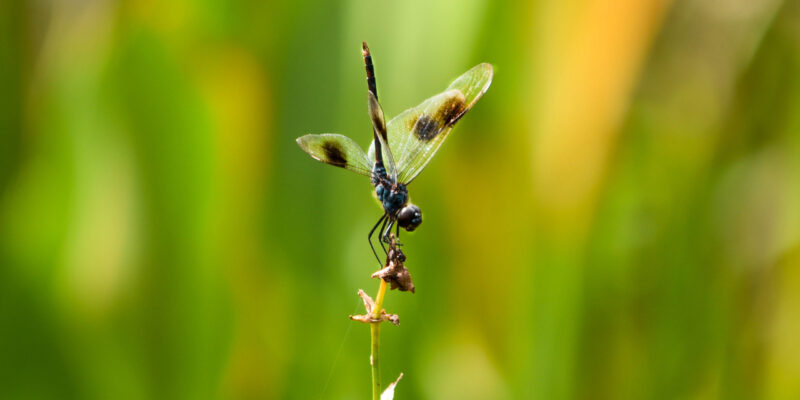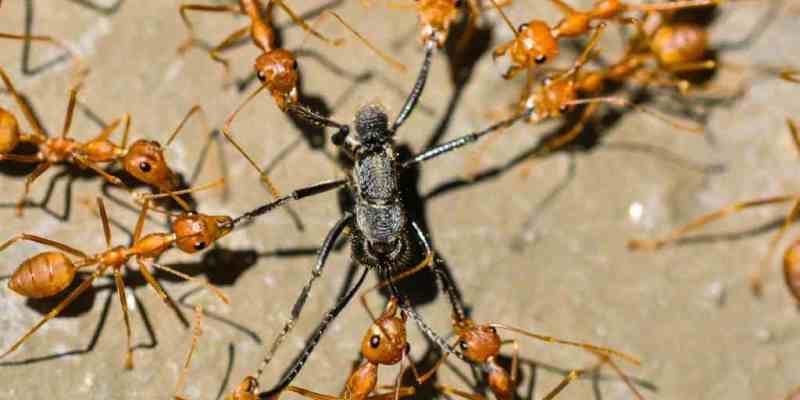Grand Challenges In Entomology is an ongoing project of the Royal Entomological Society to develop an agenda for the future of global entomology and for the Society. It is guided by the publication Grand challenges in entomology: Priorities for action in the coming decades in RES journal Insect Conservation and Diversity
After a large membership consultation and expert workshop, eleven themes were determined to group the scientific priorities in insect science. This prioritisation exercise was led by Prof. Lynn Dicks at the University of Cambridge and RES Trustee, to focus the Society’s global membership on the future of the entomological sector and its crucial role providing global solutions.
Outputs from this project will include scientific papers, themed meetings and awareness campaigns over the next five or more years.
The eleven themes identified are:
| Taxonomy | Blue Skies | Methods and Techniques |
| Anthropogenic Impacts | Conservation Options | Ecosystem Benefits |
| Technology and Resources | Pests | Knowledge Access |
| Training and Collaboration | Society Engagement |
Grand Challenges In Entomology
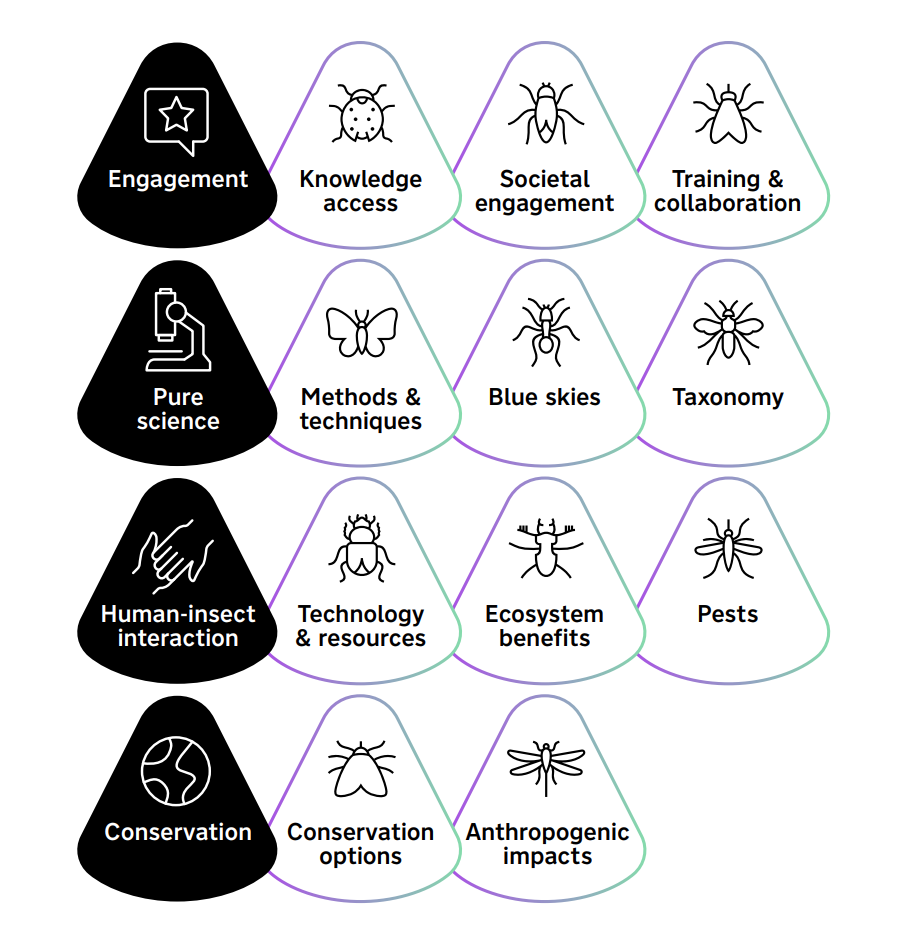
RES is calling for insects to be valued as equals to more-well-loved species of mammals and birds as it sets a global insect science agenda for the next decade.
A better understanding and appreciation of insects is crucial if humans are to continue to thrive on Earth. These are the findings of a group of insect scientists from the Royal Entomological Society (RES), who are urging the public to change their negative perceptions of insects and instead appreciate that insects, in all their fascinating diversity, should be valued as equals to more well-loved species of mammals and birds. Of the over one million species of insects currently known to science (which is a fraction of the total number estimated to exist globally), we have only begun to understand around 20%.
A landmark study, published in 2023, in RES journal Insect Conservation and Diversity, sets out the ‘Grand Challenges’ facing insect scientists now and into the future. The report highlights areas of insect science that require the most urgent attention to conserve insects and the important services that they provide, helping people and global biodiversity to flourish.
Read the Grand challenges in entomology: Priorities for action in the coming decades.
Prof. Lynn Dicks, leading conservation and insect scientist at the University of Cambridge, coordinated the report and is one of its lead authors. She is a trustee of the Royal Entomological Society, Chair of the RES Science, Policy and Society Committee, and a board member of Natural England.
“We spent much of the last century learning how to control insects as crop pests and vectors for disease, and it’s only now, as we grapple with living in a time of unprecedented environmental change as a result of human activity, that we are realising insects hold many of the answers. Insects benefit humans in innumerable ways; they are essential to human food systems, they process much of our waste and they continue to inspire major technological advances in medicine, genetics and engineering. Yet many of us still want to kill them and we have only scratched the surface in our endeavours to understand them. Our vision in publishing this new study is to inspire everyone to think again about our relationship with insects and to begin to see them as the key to our survival, as well as fascinating in their own right. They are worthy of our attention, understanding and care.”
Prof. Lynn Dicks, RES Trustee and University of Cambridge
Tiny inspirations
Insects have been inspiring and aiding human advancements for centuries.
The common fruit fly, for example, has contributed to our understanding of genes for over 100 years; to date, six Nobel Prizes have been awarded for research that advanced our knowledge about genetics and disease from studying fruit flies.
Insects have tiny brains yet behave in very sophisticated ways and entomological research has provided leaps in our understanding of neuroscience and cognition, using insects as study species to understand the science of vision, flight and adaptation to changing environments. Research into those relatively simple brains, and the complex processes they control, has also led computer scientists and engineers to study insects and provide innovative solutions in robotics, bio-computing and electronics, all through a better understanding of insects and their highly successful models for living on Earth.
The RES ‘Grand Challenges’ report is the result of two years’ rigorous consultation involving a diverse group of almost 200 insect scientists from across the world. It can be read, in part, as a response to the adoption of the Global Biodiversity Framework at COP15, which aims to address biodiversity loss, restore ecosystems, and protect indigenous rights. It sets out 61 priority challenges, within four broad themes:
- Engagement – the need for everyone, everywhere to notice and be curious about the miniature world of insects and the responsibility of entomologists, those who study insects, to share their knowledge and inspire learning and discovery.
- Curiosity science – a shift in the scientific approach to insects is evident with a clear desire for better identification, understanding and research into species with greatest potential for human benefits.
- Conservation – recognition that global insect decline, brought about by human impacts, is a serious problem and that we have a collective responsibility to protect and encourage insect life in order to safeguard our global future.
- Human-insect relationships – a desire to better understand how humans and insects can and should co-exist and how one cannot thrive without the other.
“As an active and thriving community of scientists, who have often gone quietly about the business of increasing knowledge and advising policy, we must become much more vocal about the importance of insects, highlighting their vital importance to the lives of much better-known and documented (usually larger) animals and plants. Put simply, ecosystems rely on insects, and humans have an essential role to play in their survival – it’s now up to the entomological community to inspire and enthuse people everywhere to look more closely at the fascinating miniature worlds that insects inhabit. After all, the vast majority of animals on Earth are insects.”
Prof. Lynn Dicks, RES Trustee and University of Cambridge


